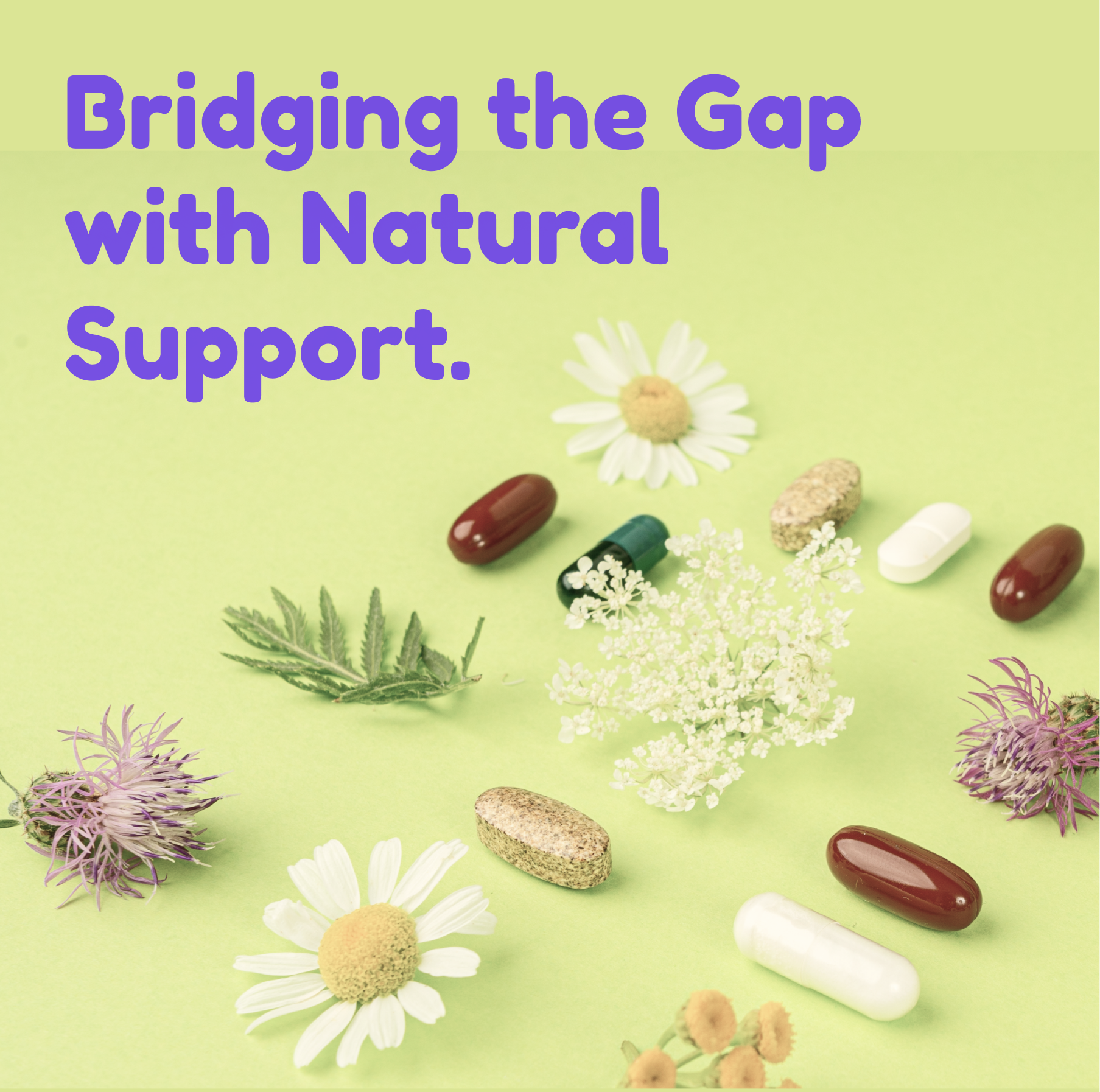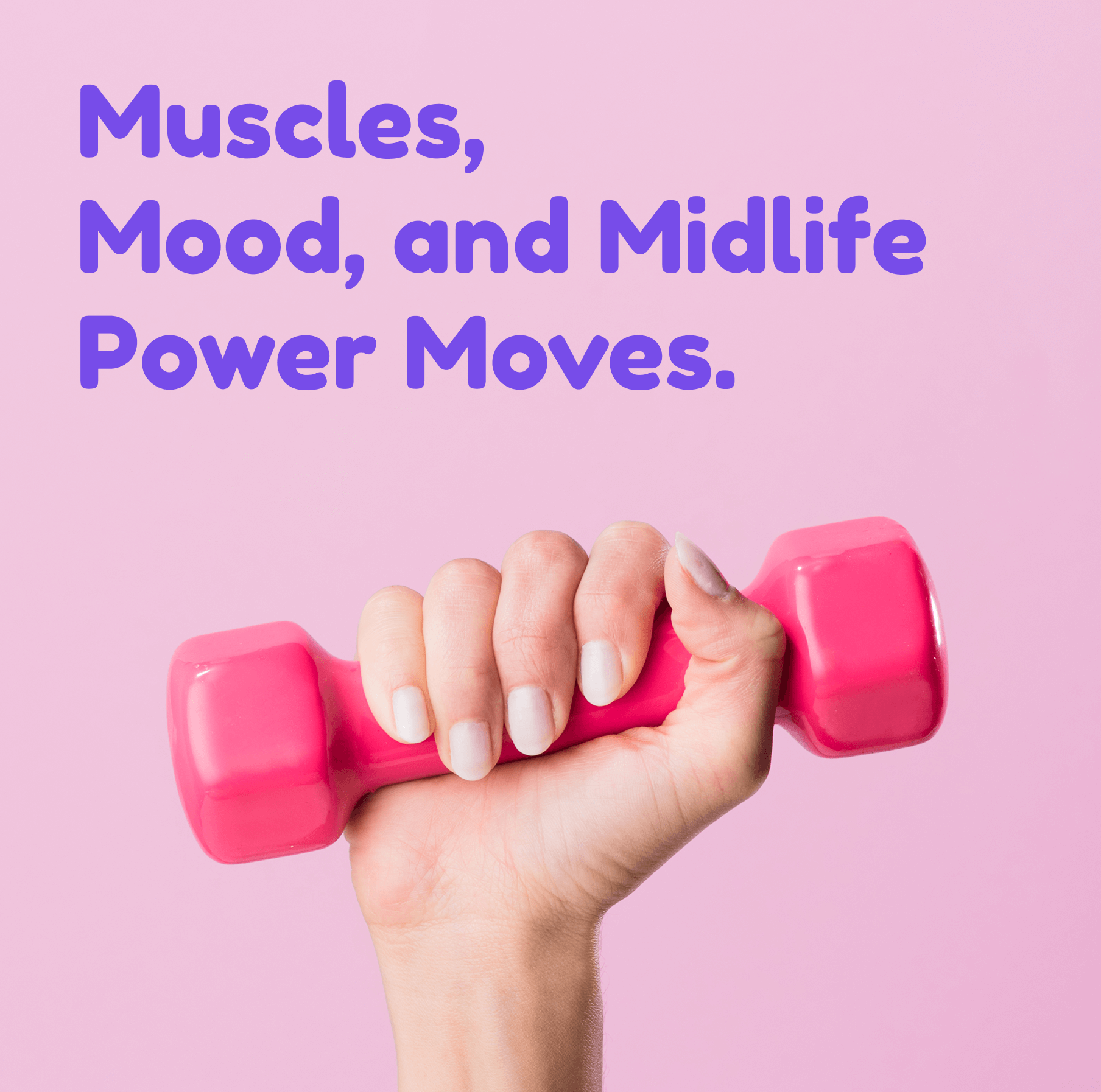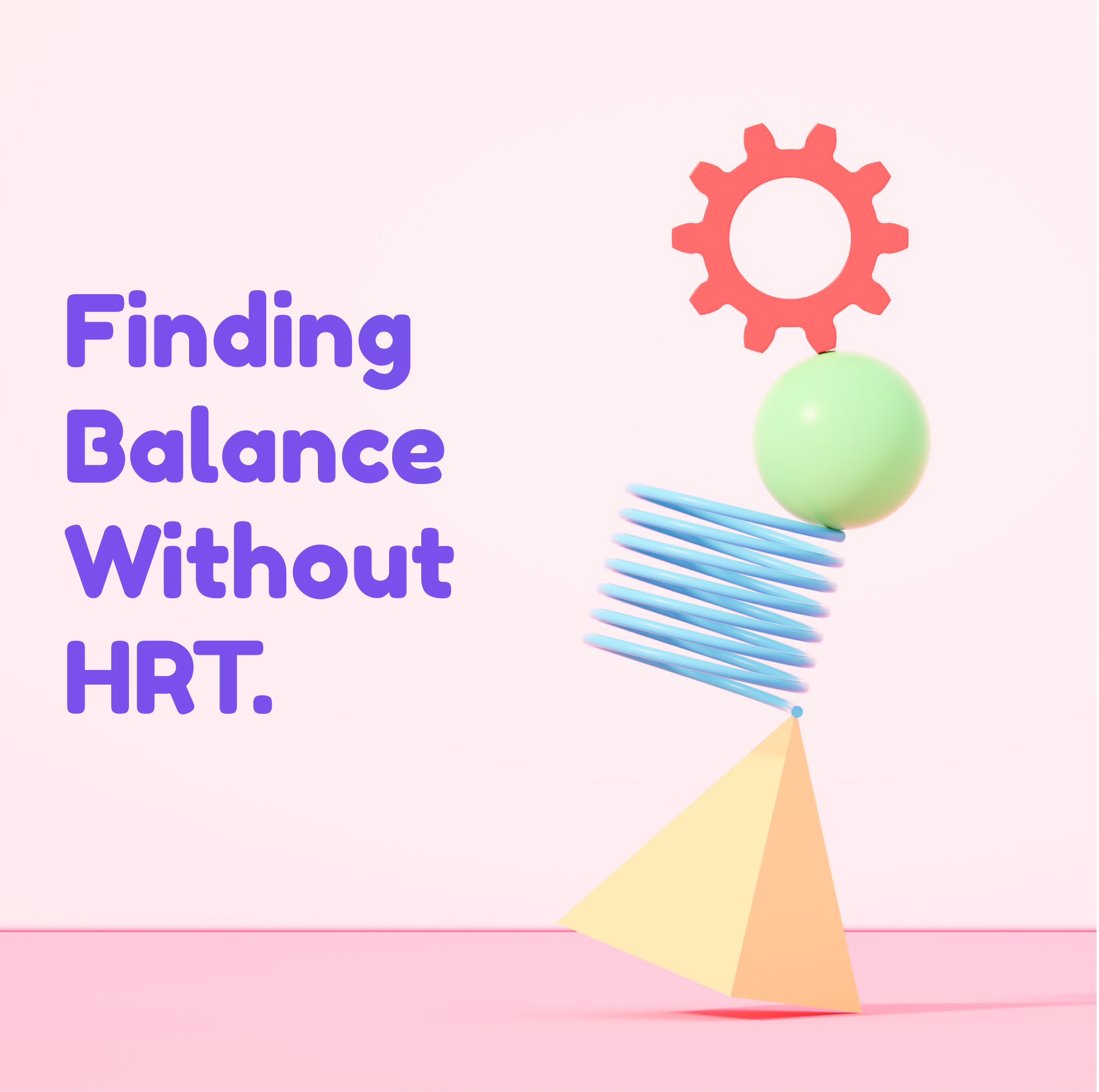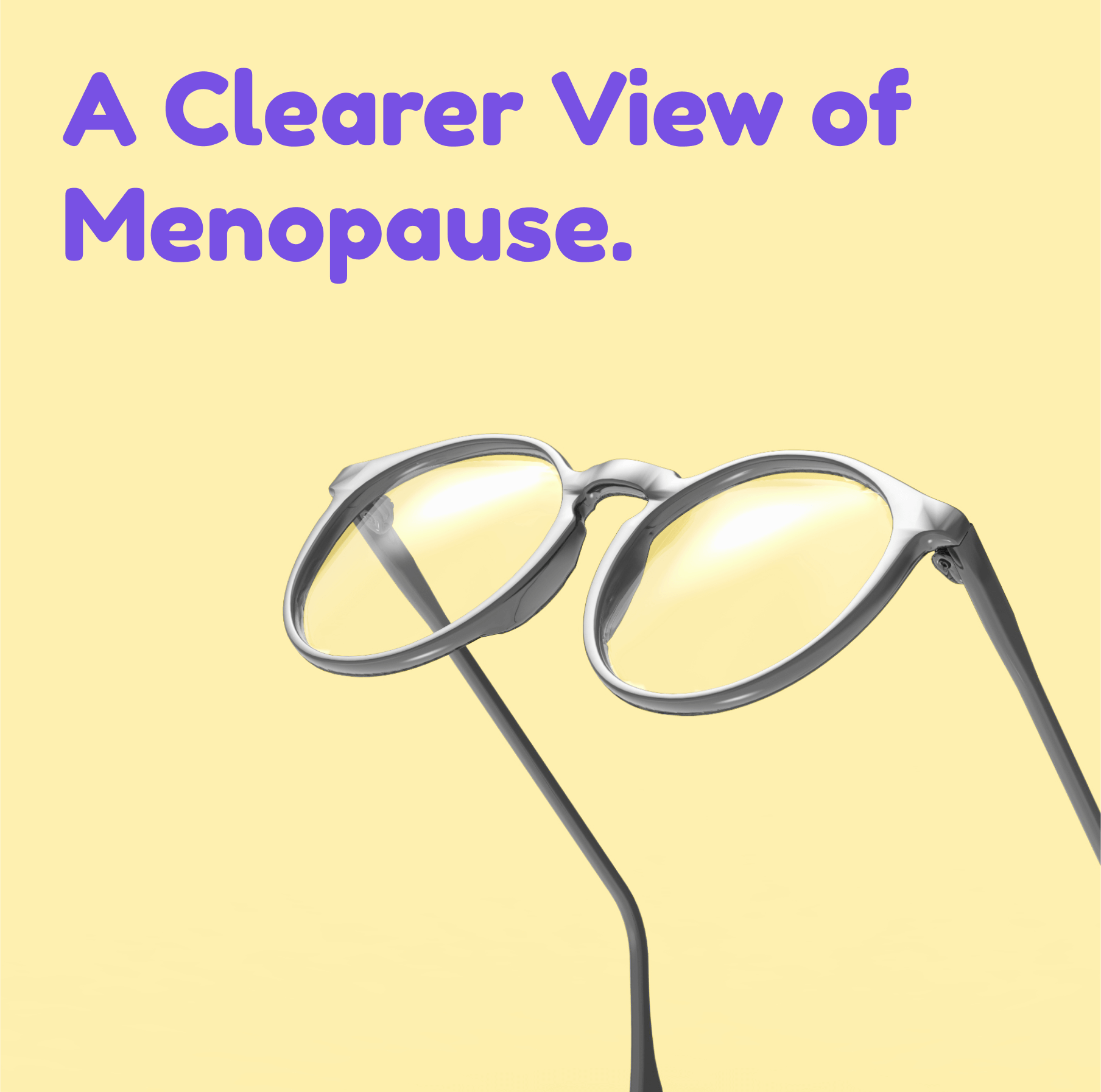
Menopause Supplements for a Smoother Transition
Menopause can feel like an unexpected plot twist in your life story—a time when mood swings, hot flashes, and sleep disruptions join the cast of characters. While every woman’s experience is unique, many find comfort in exploring natural options, either as a complement to (bioidentical) hormone replacement therapy or by itself. Today, we’re diving into the world of menopause supplements: what they are, how they might help, and what to consider before adding them to your routine.
Got questions? Ask Noor.
Understanding Menopause and Its Symptoms
Menopause is a natural transition marking the end of your menstrual cycles, usually occurring between 45 and 55 years of age. During this time, your hormone levels shift dramatically, and menopause symptoms can include:
Hot flashes and night sweats: Sudden bursts of heat that can disrupt sleep.
Mood swings and irritability: Emotional ups and downs that sometimes leave you feeling off balance.
Sleep disturbances and fatigue: Challenges in getting a good night’s rest.
Other physical changes: Such as changes in weight, vaginal dryness, loss of libido, and decreased bone density. It’s no wonder many women search for relief—and that’s where menopause supplements come in as a popular, natural alternative to traditional hormone therapy.
What Are Menopause Supplements?
Menopause supplements are natural products, often made from herbs and plant extracts, that many women use in hopes of reducing bothersome symptoms. Unlike conventional hormone therapy, these supplements aren’t a one-size-fits-all remedy but can be a supportive addition to your overall wellness routine. Some common ingredients found in these supplements include:
- Black Cohosh: Traditionally used to help reduce hot flashes and mood swings. Although research is mixed, many women report feeling calmer and more balanced after trying it.
- Red Clover: Contains isoflavones that may act as weak phytoestrogens. While its effectiveness in reducing hot flashes is debated, it could offer cardiovascular benefits.
- Dong Quai: Often dubbed the “female tonic,” though its direct benefits for menopause are less clear. Use with caution, as it may interact with other medications.
- Primrose Oil: Believed to ease discomfort and inflammation; however, evidence on its efficacy for menopause symptoms remains inconclusive.
- Wild Yam: Marketed as a natural alternative to hormones, wild yam is popular in creams and supplements even though it does not directly alter hormone levels.
- St. John’s Wort: Traditionally used for mood disorders, it might help manage mild depressive symptoms and improve overall well-being during menopause.
- Fenugreek: May help to balance hormones, relieve menopausal symptoms, and enhance libido.
- Cordyceps: By potentially influencing estrogen and supporting adrenal function, may help to alleviate menopausal symptoms such as fatigue, mood swings, and hot flashes.
- DHEA (dehydroepiandrosterone): Supports hormone levels to enhance body composition, libido, performance, and well-being. Best used under medical supervision.
- DIM (diindolylmethane): Found naturally in cruciferous vegetables like cauliflower, brocolli, and cabbage, DIM is thought to influence estrogen metabolism and may have an impact on menopausal symptoms such as hot flashes and night sweats.
How Do These Supplements Work?
While the exact mechanisms aren’t always fully understood, many menopause supplements aim to support your body’s natural balance during a time of hormonal change. Here are a few insights:
Balancing Hormone Levels: Some botanicals are thought to gently interact with estrogen receptors. For example, the phytoestrogens in red clover and soy-based products mimic estrogen’s effects but in a milder way.
Reducing Hot Flashes: Ingredients like black cohosh may help reduce the frequency and intensity of hot flashes. This is especially appealing if you’re looking for an alternative to traditional hormone therapy.
Easing Mood Swings: St. John’s wort, known for its mood-stabilizing properties, can help ease mild depression and anxiety. Although not a cure-all, it might offer a gentle lift when you’re feeling blue.
Supporting Overall Health: Many supplements also include vitamins and minerals that contribute to bone health, energy levels, and cognitive function—important considerations since menopause can influence these areas too. Keep in mind that while some women notice real improvements, scientific studies often show mixed results. Every body responds differently, and what works for one person may not work for another.
Safety First: What to Consider Before Starting Supplements
Even though many menopause supplements are “natural,” they are not without risks. The Food and Drug Administration (FDA) does not regulate these products as strictly as prescription medications, so quality and dosage can vary significantly. Here are a few important points to keep in mind:
Consult Your Healthcare Provider: Before adding any supplement to your regimen, especially if you’re taking other medications or have a history of breast cancer, discuss it with your doctor.
Watch for Side Effects: While most natural ingredients are generally safe when taken in recommended doses, high doses of certain herbs can lead to side effects. For instance, black cohosh at high doses may cause headaches, nausea, or even liver issues in rare cases.
Understand the Research: Organizations like the North American Menopause Society provide guidance on the use of these supplements, but evidence is still evolving. Be cautious and do your research.
Quality Over Quantity: Since supplements aren’t closely monitored, opt for products that have been third-party tested or recommended by trusted professionals.
Don’t Rely Solely on Supplements: While they can ease symptoms, supplements should ideally be one part of a broader, holistic approach that includes diet, exercise, and stress management.
Practical Tips for Incorporating Menopause Supplements into Your Routine
If you decide that menopause supplements might be worth trying, here are some actionable tips to ensure you do it safely and effectively:
Start Low and Go Slow: Begin with a low dose and gradually increase if needed. Monitor how your body reacts and adjust accordingly.
Keep a Symptom Diary: Track your symptoms—hot flashes, mood changes, and sleep quality—to see if the supplement is making a noticeable difference.
Combine with Lifestyle Changes: Supplements work best when paired with healthy habits.
Consider: Diet: Embrace whole foods rich in phytoestrogens, such as soy, legumes, and seeds.
Exercise: Regular physical activity can boost mood and improve sleep.
Mindfulness: Techniques like yoga or meditation can help reduce stress and enhance overall well-being.
Be Patient: Many supplements take time to work. Give any new regimen at least a few months before drawing conclusions.
Stay Informed: New research emerges all the time. Keeping an eye on developments can help you make better-informed choices about your health.
Balancing the Science with a Personal Touch
Menopause is as much an emotional journey as it is a physical one. It’s important to blend scientific facts with your personal experiences. While the evidence for some menopause supplements isn’t definitive, many women swear by them for reducing symptoms such as hot flashes and mood swings. Think of these supplements as one tool in your wellness toolkit—a way to complement other healthy lifestyle choices and / or, where appropriate, hormone therapy. A little lighthearted humor can go a long way.
Imagine your body as a well-loved car that’s been through many miles. It might start making odd noises (hello, hot flashes and mood swings!), but with the right tune-up—a balanced diet, exercise, and the occasional supplement (and / or hormones) —you can keep it running smoothly for the long haul.
Looking Ahead: Embracing Menopause with Confidence
Ultimately, menopause is a natural chapter in life, not a crisis to be endured. Whether you choose to try menopause supplements or explore other alternatives, the goal is to enhance your quality of life during this transition. With the right combination of natural remedies, healthy habits, and a supportive healthcare team, you can navigate this stage with grace and confidence.
Remember, every woman’s experience is different. What matters most is finding the approach that works for you—one that eases symptoms without compromising your overall well-being. Embrace the journey, stay curious, and never hesitate to ask questions along the way. Menopause may bring its challenges, but with thoughtful care and a touch of humor, it can also open the door to new beginnings. Here’s to a smoother transition and a vibrant, empowered next chapter in life!
Always consult a healthcare professional before starting any new supplement regimen. This article is intended for informational purposes and should not replace professional medical advice.



